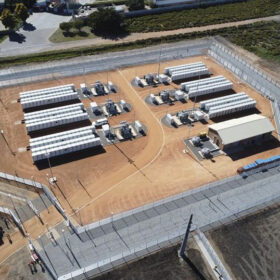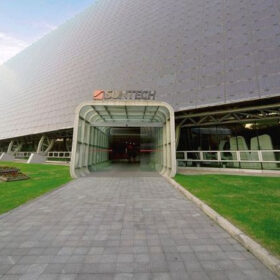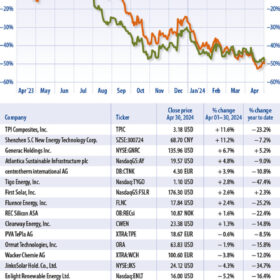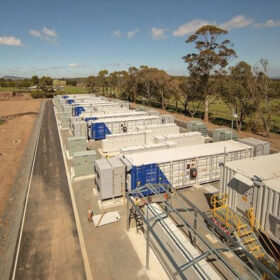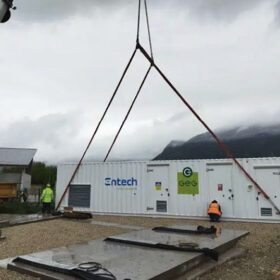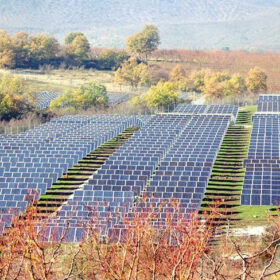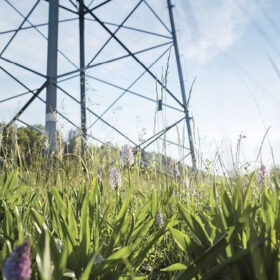The rapid rise of battery storage
Battery energy storage system (BESS) technology has come a long way since 2012. Kai-Philipp Kairies, CEO and co-founder of Accure Battery Intelligence, reflects on the fast-paced evolution of BESS and asks what will come next for an industry with plenty of stored potential.
Sponsored: Focus on quality and durability
As low prices present new challenges to industry players, Suntech argues that manufacturers should not lose sight of the need for high-quality products with long-term durability. Customers also need to prioritize quality and durability over price alone.
US solar slump
Financial and regulatory uncertainty plus rising module prices are affecting project timelines in the United States and domestic companies must contend with a gray market at home and aggressive pricing abroad. Jesse Pichel, of Roth Capital Partners, explores the key trends in a tough month for US solar stocks.
Versatile lithium-ion can unpick gridlock
The Swiss Army knife qualities of lithium-ion batteries have helped scale the technology. Now their ubiquitous nature means they are ideally placed to help electricity system operators balance the grid, argues Gerard Reid, co-founder and partner of Alexa Capital.
On the European front line
In recent years, the Baltic countries have experienced a solar generation boom as the region seeks to kill two birds with one stone. These nations aim to break away from years-long energy dependence on Russia amid growing security concerns while also continuing to prioritize the green energy transition.
The art of a well-written algorithm
Large battery storage systems are taking on an increasing number of tasks in the German grid, meaning that the volume and speed of transactions can no longer be managed without computers. As Jochen Siemer reports, traders are working on algorithms to fully automate transactions.
France: Plans in place
Investment plans to reinforce the French grid are worth several billion euro per year. The aim is to increase current capacity by taking advantage of the colocation of renewable energy sources and the construction of stationary batteries.
China could lead the world to net zero
China, with an 18% share of the global population, uses 26% of the world’s primary energy and emits 33% of the world’s energy-related CO2. The energy transition unfolding in the country isn’t merely a national affair as its ramifications echo globally, explains Mahnaz Hadizadeh, a researcher for consultancy DNV.
Greece: Is it time for behind-the-meter storage?
The waste of excess solar electricity is a rising problem across Greece. Policymakers and grid operators are considering a range of strategies to find a workable solution.
UP: Let’s get engaged
With Europe’s grids ripe for upgrade and expansion, pv magazine’s Carrie Hampel examines community acceptance of energy infrastructure projects and some of the issues involved. Communication between communities and stakeholders is a two-way street.
